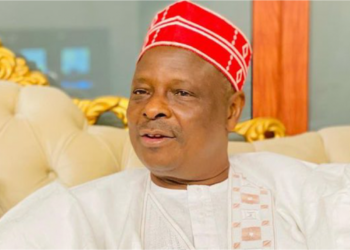* Dare Tinubu, Atiku, Obi, others, Pass Bill To Stop Them From Contesting 2027 Election
The wave of constitutional amendments being shunned out by the House of Representatives have become matters of concerns to most Nigerians, opinions gathered From The Street (FTS) have shown
Coming at a time that the National Assembly is bogged down by some parliamentary and constitutional issues, typified by some alleged moral burdens and unpaliamentary conducts, some Nigerians see the action as “ambush” on Nigerians and particularly the media as some of these bills may not be subjected to proper public scrutiny.
Of special note, among others, is the passing for the second reading by the HoR, a bill seeking to stop anyone above 60 years from vying for election to the Offices of the President and Governor in Nigeria.
If this bill scales legislative scrutiny and is signed into law, major actors for the 2027 elections for now, President Bola Ahmed Tinubu, former Vice President Atiku Abubakar, and the 2023 presidential candidate of the Labour Party, Mr Peter Obi, could miss out on the presidential contest as they are all above 60 years of age.
Some analysts say that the fate that befell the immunity bill, for which the House revised itself, controversially, may be the case with the age limit bill.
House of Representatives’ decision to rescind the bill that sought to strip the Vice President and Governors of immunity has raised concerns , with analysts condemning the move as a lack of courage to fight corruption as well as shielding corrupt leaders.
However they further argue that the seemingly erosion of trust and integrity on the legislature by Nigerians, who see them as ‘rubber stamp’ of the executive arm, seems to have compounded the whole issue.
Consequently, while some of the 39 proposed bills could be regarded as promoting decentralisation, some critics see some as tantamount to over decentralisation and.consequently, erosion of state autonomy.
Yet others see some of the parliamentarians as opportunists, whi ate catching in on the ‘mood of the moment ‘ to include pr sneak bills on some issues that were rejected by them earlier.
Among the most controversial proposals is a bill seeking to abolish State Independent Electoral Commissions (SIECs) and transfer the conduct of local government elections to a federally controlled body.
Proponents argue that this would enhance electoral credibility, curbing the influence of state governors who often manipulate local elections. However, opponents see it as a veiled attempt to strip states of a key function and further entrench federal dominance.
The proposed establishment of a National Local Government Electoral Commission has further deepened anxieties. For many, these moves mirror a return to centralised governance reminiscent of military rule, where local governments were mere administrative appendages of the centre rather than being independent grassroots government.
They further argue that under the federal sysyem currently being operated, power should be shared between the centre and the federating units.
But, the proposed amendments seek to strip states of this responsibility and vest it in a federal body, a move many consider unconstitutional and dangerous.
Also, the House of Representatives on Thursday passed for second reading a bill seeking to bar individuals above 60 years from contesting for the offices of President and Governor in Nigeria.
The bill, sponsored by Rep. Ikeagwuonu Ugochinyere, proposes amendments to the 1999 Constitution to revise eligibility requirements for these key political positions.
According to the bill, besides the Presidential and gubernatorial candidates not being older than 60 years at the time of contesting, the candidates must hold at least a Bachelor’s degree in their chosen field of study.
The bill specifically amends Section 131 of the constitution to introduce the age limit for the presidency and Section 177 to apply the same requirement to gubernatorial candidates.
While, some Nigerians see wisdom in the bill, they question the timing and conclude that the National Assembly may not have the political will to pass the bill as the leadership of the governing party may not sanction it.
In addition to the age limit bill, the House passed several other important bills for second reading, including: Alvan Ikoku Federal University of Education Bill: Sponsored by Speaker Tajudeen Abbas and Rep. Ikenga Imo Ugochinyere, this bill seeks to upgrade Alvan Ikoku College of Education in Imo State to a federal university.
Bill for the Creation of Ideato West Local Government Area: This bill proposes the creation of an additional LGA in Imo State to enhance administrative and developmental efforts.
Bill for Mandatory Inclusion of Youths and Persons with Disabilities in Political Appointments: Sponsored by Rep. Ugochinyere, this bill aims to ensure inclusivity in governance by reserving positions for young people and persons with disabilities.
ALSO READ:Bill To Remove Immunity Enjoyed By VP, Governors Scale Second Reading
Bill to Move Trade and Commerce to the Concurrent Legislative List: Also sponsored by Rep. Ugochinyere, this bill seeks to grant both federal and state governments the power to regulate trade and commerce, boosting economic activity nationwide.
Reserved Seats for Women in National and State Assemblies Bill: Sponsored by Rep. Kafilat Ogbara, this bill aims to increase female representation in legislative bodies.
Judicial Reform Bills: Timelines for Justice Administration Bill (Sponsored by Rep. Benjamin Okezie Kalu) – Seeks to expedite judicial processes.
Increase in Supreme Court & Court of Appeal Justices Bill (Sponsored by Rep. Bello Kaoje) – Proposes an increase in the number of justices to improve efficiency.
Creation of New States: Creation of Wan State (North Central) Bill, Creation of Gobir State (Northwest) Bill.
With these legislative efforts, the House believes that it will reshape Nigeria’s governance structure, promote youth and gender inclusion, and enhance economic and judicial efficiency.
Friday Ameh, Lagos based analyst
sees the bills as attempts, to turn Nigeria into a de facto unitary state or give undue advantage to some politicians or political class.
“How can same House of Representatives that rejected creation of more states recently, in another breath, pass a bill for the creation of three more states now, or approving/creating some Local Governments for some states. It’s incomprehensible,” Ameh said.
Also, some see the action as highliting the irony of simultaneously pushing for state police and resources control, an initiative meant to empower states, while at the same time stripping states of their power to conduct elections at the local government level.
Critics of the bills questioned why states deemed capable of managing security through their police forces, are not trusted to conduct their own elections.
Supporters of these amendments argue that they are necessary to ensure credible, transparent, and fair local government elections, as SIECs have historically been accused of being tools of state governors who manipulate the electoral process.
However, some other analysts say what Nigeria needs are strong institutions and devolution of powers to the units to make the centre less attractive.
For instance they have called on the National Assembly to rather amend the Electoral Act to remove the president’s power to appoint electoral umpires.
They further said that much of the backlash against these amendments has centred on President Bola Tinubu, a former governor of Lagos State who, during his tenure, fiercely opposed federal overreach, through his many struggles.
Infact, Tinubu, as a leading figure in the National Democratic Coalition (NADECO), was vocal in his opposition to military dictatorship and fought for democratic principles, including the protection of state autonomy.
However, his recent controversial declaration of a state of emergency in Rivers State, coupled with the federal legislature’s dramatic approval of the suspension of Governor Siminalayi Fubara and other elected officials, has raised alarm bells about his democratic credentials.
Another contentious aspect of the amendment bills is the proposal to establish a House of Assembly for the Federal Capital Territory (FCT). Critics argued that this move further complicated the federal balance, as the FCT would have a civil service and a legislature, making it functionally similar to a state. This will question the concept of federalism.
The ongoing debate over these constitutional amendments goes beyond political maneuvering, it strikes at the heart of Nigeria’s federalism. If passed, these changes could redefine the relationship between the federal and state governments, raising critical questions about the balance of power, democratic governance, and the true essence of federalism in Nigeria.











